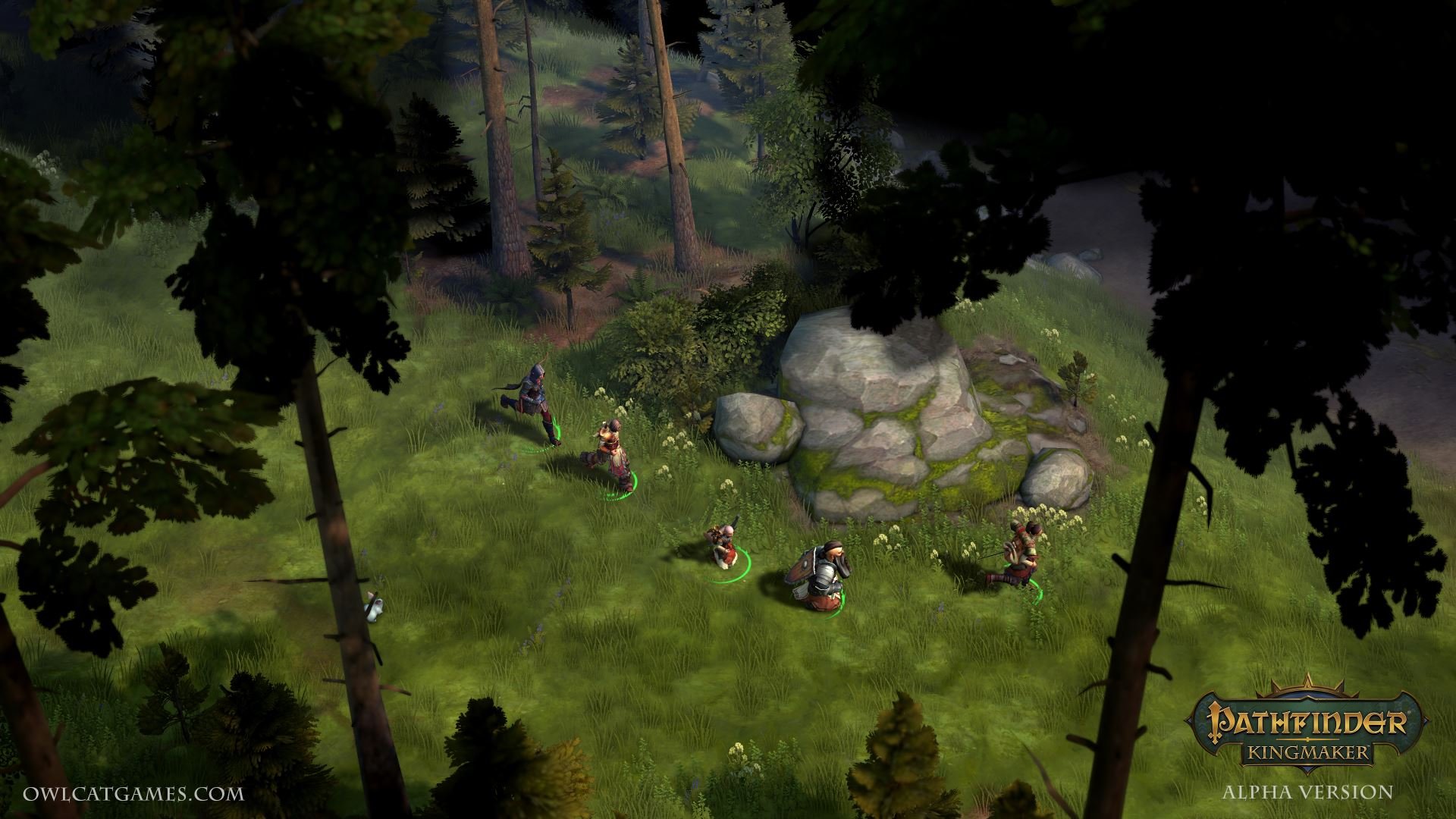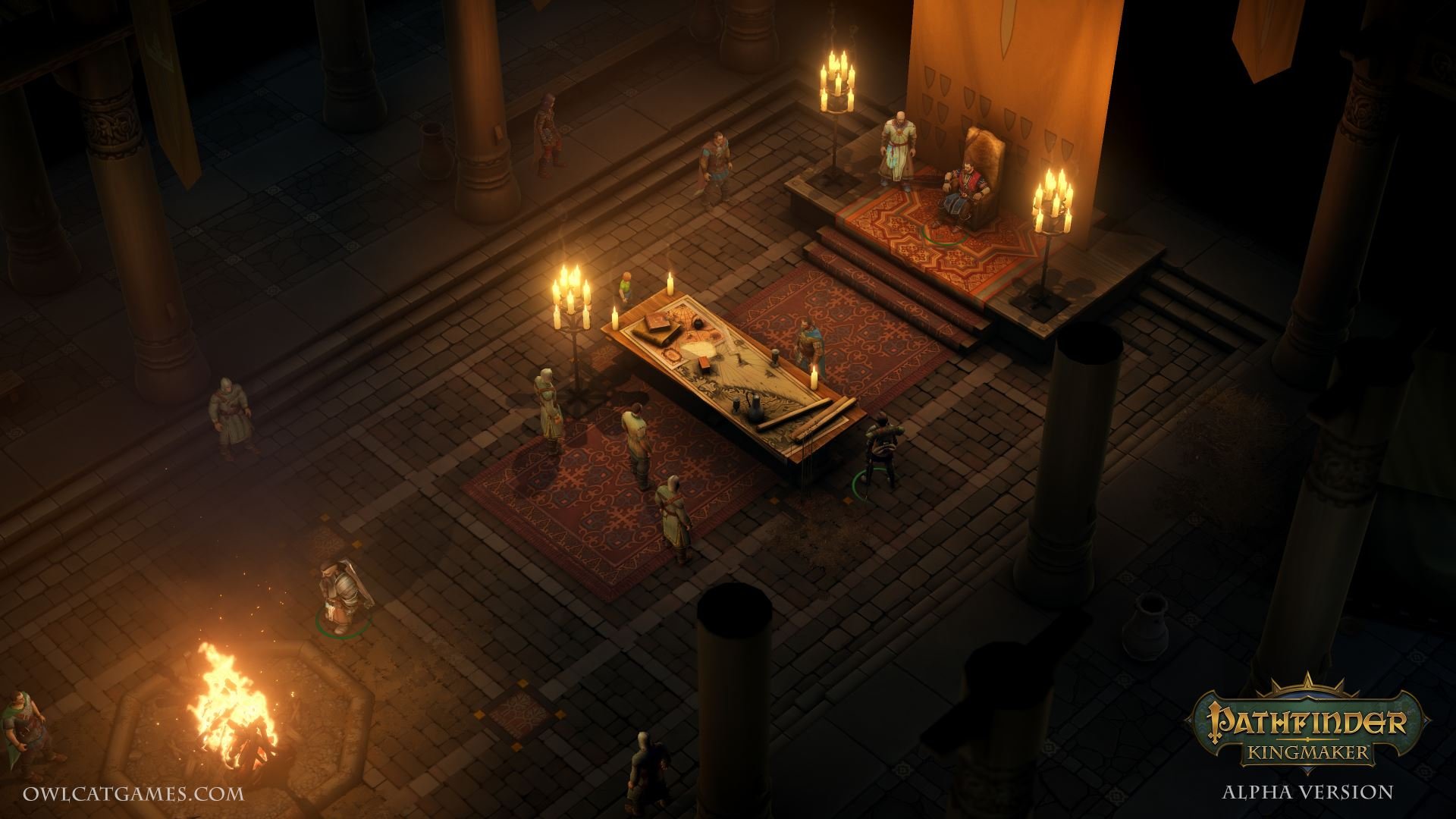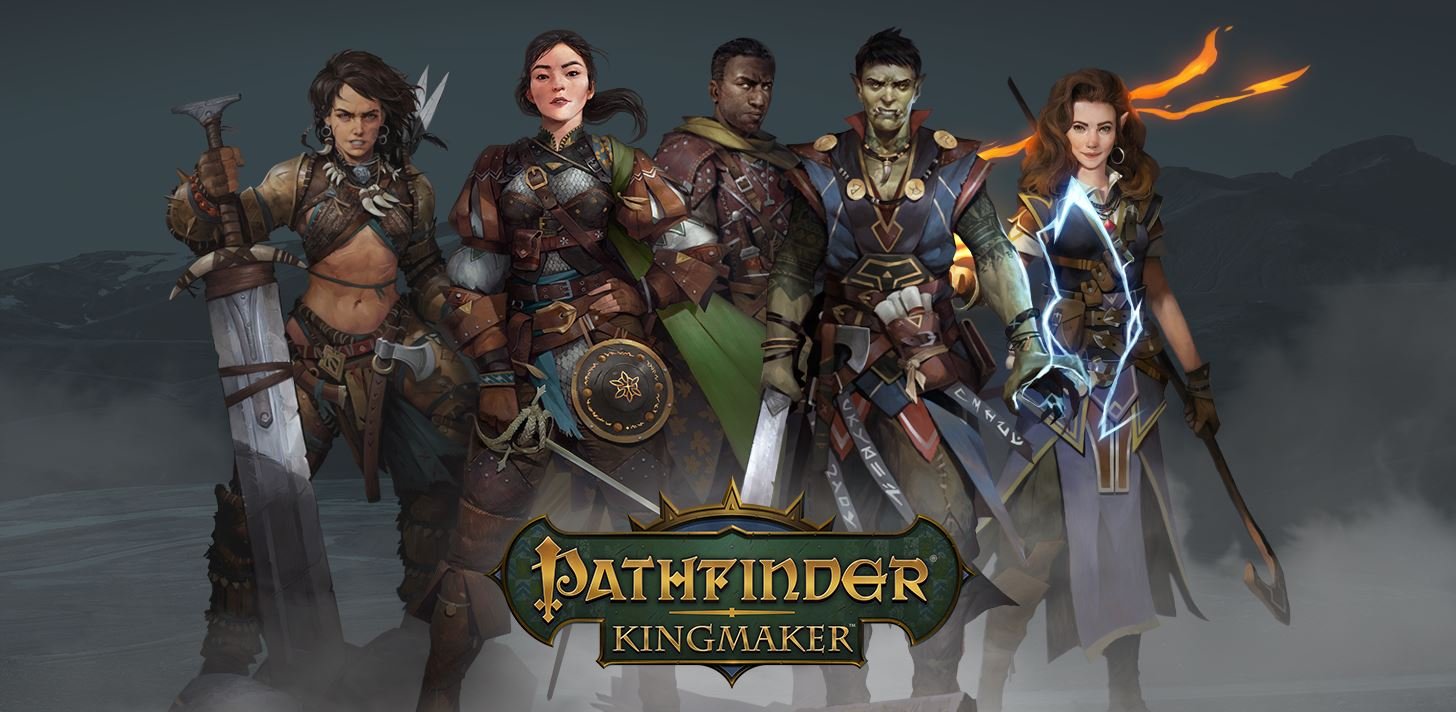Greetings, steemit community!
To kick off my series of interviews with interesting people, I'm excited to bring you videogame designer and writer Chris Avellone, most well-known for his narrative work on Western RPGs such as Planescape: Torment, Star Wars: Knights of the Old Republic II, and Pillars of Eternity.

Here, Chris kindly takes the time to talk about his latest project: OwlCatGames' Pathfinder: Kingmaker, which is entering the final week of its already successful Kickstarter campaign.
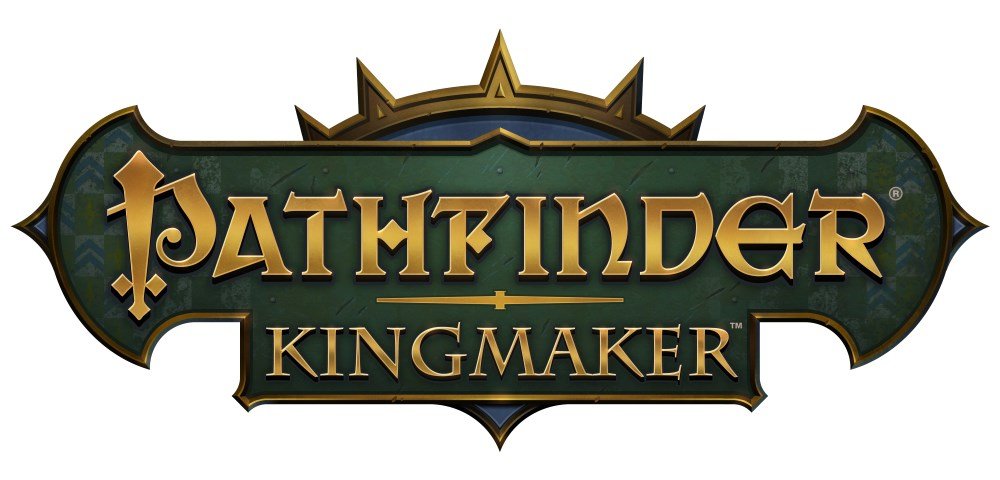
Pathfinder... I'd never heard of it before the Kickstarter project popped up on my feed. How does Pathfinder differ from, say, Dungeons and Dragons, and what is the relationship there?
Chris: Pathfinder is a pen-and-paper fantasy role-playing ruleset from Paizo, Inc (Paizo is derived from the Greek, which means “I play” or “to play”). Paizo used to publish Dragon and Dungeon magazines for Wizards of the Coast (who make Dungeons and Dragons). When Paizo stopped publishing Dragon and Dungeon in 2007, they decided to try their hand at their own game world and have had a tremendous amount of success. I’ve played Pathfinder (not nearly as much as the Owlcat team), and I’ve always liked the system. So when Owlcat asked if I’d be interested, I came on board – first to assist with the game narrative, and I’ve also been helping them with the Kickstarter as much as possible as well.
So how is 'Pathfinder' distinct from the 'Kingmaker' part of the game's title? Is Kingmaker a campaign setting, like Forgotten Realms, or is it a game module - perhaps this question is better asked as "What's the difference between Pathfinder, Kingmaker and the Stolen Lands"?
Chris: Pathfinder is the name of the game system. Kingmaker is the specific name of one of Pathfinder’s “Adventure Paths.” For those not familiar with Adventure Paths, they are a series of six interconnected modules that take players from Level 1 to… well… a frighteningly high level. The Kingmaker Adventure Path is like playing six seasons of Game of Thrones, it’s that epic. And intricate. An Adventure Path is incredibly large in scope and it’s something intended to play with your friends over many, many campaign sessions. Kingmaker is one of the most loved of the Pathfinder adventure paths. “The Stolen Lands” is where Kingmaker takes place – it’s a contested territory in the world of Golarion, and many, many hundreds of empires have risen and fallen there. The Stolen Lands are where you carve out your new Kingdom and set about exploring the wilderness, dungeons, and other mysterious locales.
How can total newcomers get up to speed with the background and setting before playing the game when it launches, or will that not be needed at all?
Chris: Oh, not needed at all. We’ve set up the game introduction to give you a good sense of self, your place in the world, and your goal – in addition, the area you’re heading to in Golarion (the Stolen Lands) will be new to both you as a player and you as a player character. You’ll be exploring it together, so there’s no danger of needing lots of background exposition (although journals and companions can help, if you choose) before embarking on the adventure.
What is the relationship between Owlcat and Paizo in terms of free reign over the iconic characters - are you guys able to go wild with their interactions with the player's party, or are they keeping a close and watchful eye on how they are used?
Chris: Owlcat and Paizo speak often, and they’ve been very accommodating and helpful when it comes to the arcs of their iconics (and the adventure itself). So Paizo’s been keeping an eye on it, but I think because Owlcat is so familiar with the Pathfinder franchise, the game mechanics, and the Adventure Path, they are often able to put their reasoning for various decisions in the right context with Paizo, which makes things easier. Also the Owlcat developers – their Pathfinder knowledge borders on terrifying. Terrifying. And some of the team members have played the pen-and-paper version of Kingmaker many times, they love it that much.
Companions! So far we've seen Kickstarter updates about Ekundayo, the Ranger, and Valerie, the Fighter, plus two more in this picture below who, as far as I know, have not yet been named. Are you able to hint at the other classes (I'm sure I see a mage and maybe a knight or paladin there?), and how many companions there will be in total?
Chris: We won’t know the final number of companions until the campaign’s end, but we’re trying to represent a wide range of races, classes, and alignments. I will say that the Golarion gods make a number of comfortable classes a lot more interesting in temperaments and approaches. ;)
You have already stated in an Owlcatgames.com interview how you prefer 'smart' evil characters, and used the example of "talking two enemies into killing each other" - are you able to expand on this with anything we can expect in the game?
Chris: Um, I may have just done the specific example inadvertently in the interview. But yes, there’s at least one sequence I know of where you can do that, and it’s glorious to turn an uneasy alliance against each other with just a few well-chosen words.
So on to the Kickstarter campaign... you guys have surpassed the funding goal and still have 8 days to go. That must feel insane, right?
Chris: It is gratifying to see the support – it’s proof that Pathfinder and Paizo have a strong following, and the players want to see a computer RPG as much as we want to make one. Now that the funding goal is in reach, now we can start unveiling even more goals for the game that can make it even better.
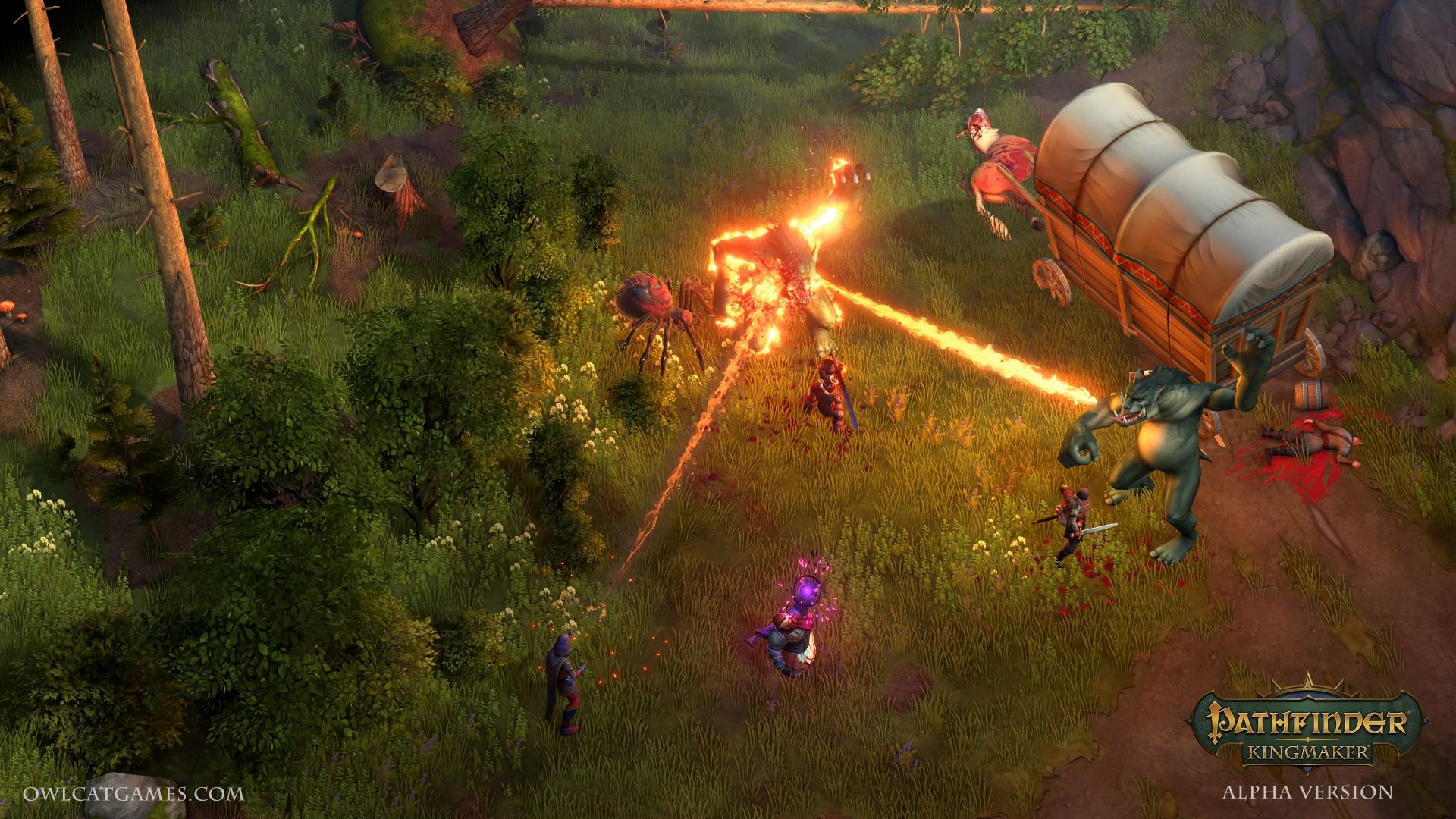
View full size.
Kickstarter and its ilk have really reignited what appeared to be a dying genre, with the likes of Pillars of Eternity, Wasteland 2 and Torment: Tides of Numenera all smashing funding goals. You've been a part of all of these projects, and now are lending your hand to another. What is it about this genre that sees it having so much success with crowdfunding, while all but ignored by the larger publishers?
Chris: I believe it’s largely because crowdsourcing lets you talk directly to your fanbase and your audience – with larger publishers come larger profit expectations, and isometric RPGs don’t provide the same profit as some larger mass market titles. As a result – and this isn’t a bad thing, it’s just the reality – often, it doesn’t make sense for larger publishers to focus their efforts on “smaller” isometric efforts when they can shoot for a wider audience in other genres. I don’t blame them for this, but I am happy that Kickstarter and crowdsourcing came along and changed the game development funding model so in cases like Pathfinder: Kingmaker, we can ask the fans directly if this is a product they would support rather than having to pitch to a publisher.
Awesome - thanks a lot for your time, Chris. Good luck with the game, and I look forward to checking in with you again soon!
Chris: Thanks for reaching out, and absolutely my pleasure!
Next up I'll be running a (much) longer second part in which we discuss many highlights from Chris' twenty-plus years in games development. For now, follow Chris on Twitter.

